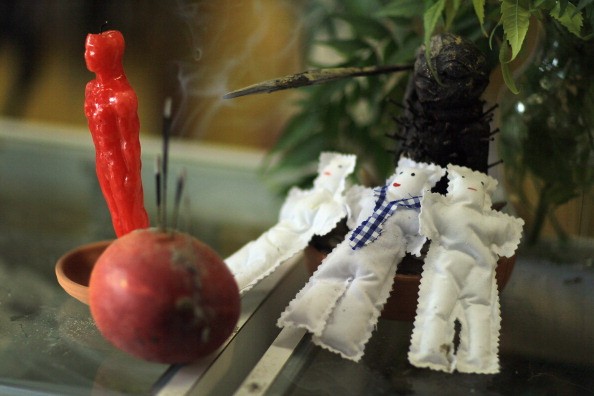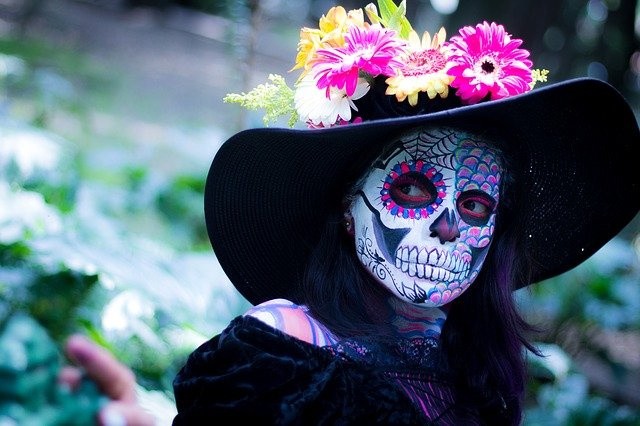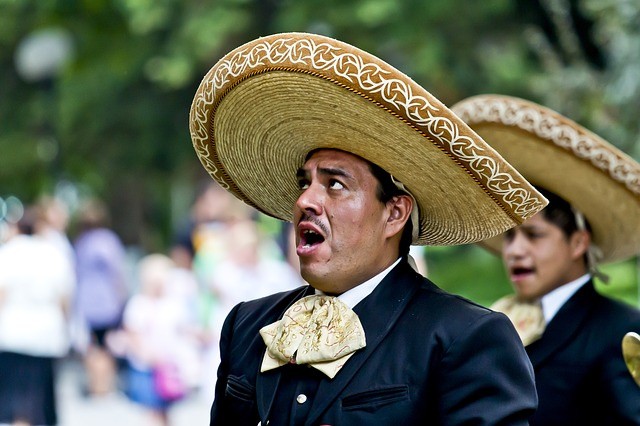Offensive Halloween Costumes You Definitely Shouldn't Wear
Halloween is a great time to dress up as anything you like unless you're dressing up a cultural stereotype. Then, you might want to rethink your offensive Halloween costume.
The holiday is a minefield of cultural appropriation missteps, Bustle said. It's important to remember that dressing up as a cultural stereotype is never okay. It automatically makes you an offensive Halloween costume.
It's not okay because it reduces a part of a culture that you're using as a costume as just that, a literal costume. People will mistake your offensive Halloween costume as something that can be taken off after a day of trick-or-treating.
In case you need a refresher, here are some cultural appropriation missteps you have to avoid:
'Voodoo' Witch Doctor
According to NPR, "voodoo" is a catch-all term for many related religions in Louisiana, Brazil, Cuba, and the Dominican Republic. These religions combine Catholicism and West African Vodun.

But the most famous one in America is Haitian Vodou, a religion created by enslaved Africans who came in contact with Catholic missionaries around the 16th century.
None of the real religions come close to the Hollywood depictions of voodoo. Dressing as a "voodoo witch doctor" for Halloween will only worsen stereotypes about the existing religions.
Anything Related to Día De Los Muertos
Día De Los Muertos and Halloween are not the same celebration.

The Day of the Dead celebrates and honors the life of people who passed away. Meanwhile, Halloween is a Celtic festival where people wear costumes to ward off ghosts, said History.
The other welcome the dead, while the other chases them away.
From sugar skulls to Calaveras, anything related to the Mexican holiday is a symbol to Día De Los Muertos, not a costume, said Pop Sugar.
The kicker here is it's not cultural appropriation if it's your own culture. Mexican-American makeup artists often do sugar skull makeup to honor loved ones in the way they know best-beauty.
Señor and Señorita
Sombreros, ponchos, or dresses that look like that Mexican flag are also not okay. These offensive Halloween costumes perpetuate Mexican stereotypes, which is a big no-no.

It reduces culture down to white-washed icons that will not fly today. These costumes usually take "Mexican" as the umbrella term for Latinos as a whole.
These also often have the wearer take on symbols of a culture for a night. But Mexican culture is not a costume.
Some Basic Rules
Susan Scafidi, author of Who Owns Culture: Appropriation and Authenticity in American Law, told USA Today there are three rules to follow:
- Source: When picking a costume, first think about the source culture. If the culture has faced discrimination or oppression at some point in history, it's best to take caution.
- Significance: This rule also requires people to consider if the icon they picked is sacred. If it is something of major cultural or religious significance, rethink your choices.
- Similarity: When thinking of a Halloween costume with cultural undertones, it's also best to see how similar the real item is to the "costume." There may be more leeway for a costume simply inspired by the culture, but copying the exact look is a totally different story.
Check these out:
4 Significant Día de los Muertos Traditions to Honor Departed Loved Ones
3 Terrifying Latino Urban Legends to Tell Your Kids this Halloween
Subscribe to Latin Post!
Sign up for our free newsletter for the Latest coverage!
© 2026 Latin Post. All rights reserved. Do not reproduce without permission.















